Are Cocker Spaniels Hypoallergenic? If You Want One But Have Allergies, Read This First
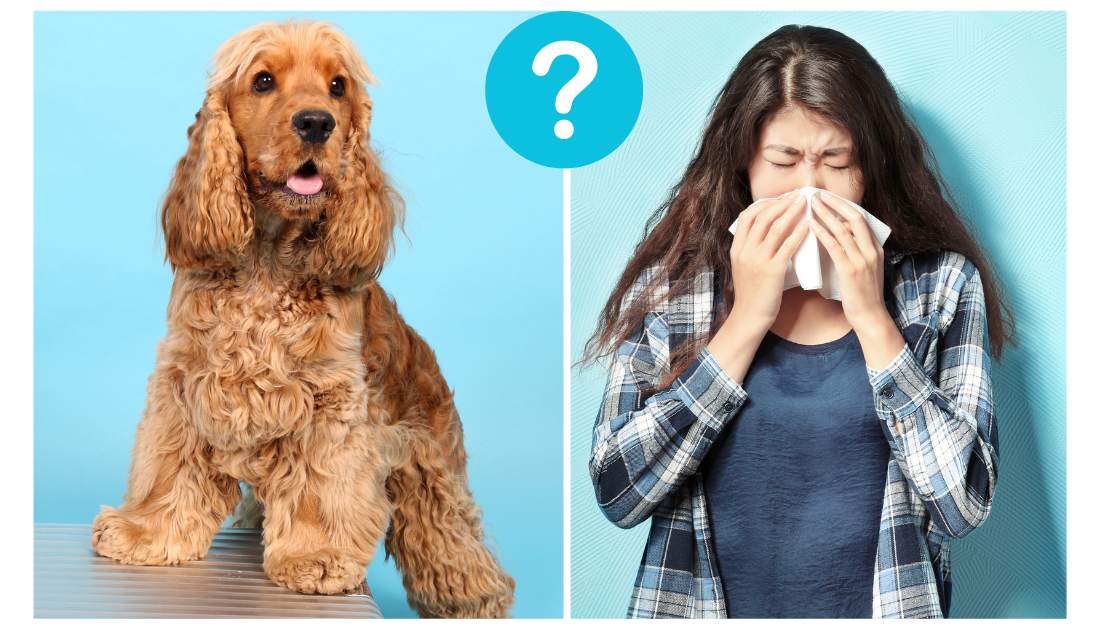
With their big, round eyes, goofy personalities, and easygoing demeanor, it’s easy to fall in love with the Cocker Spaniel! Beyond being one of the sweetest, most tolerant breeds, Cocker Spaniels are also revered for their plush, feathery coats. Wavy and so soft, you’re not alone if you’re imagining what it might feel like to bury your face in a Cocker Spaniel’s gleaming fur.
But, what if you have allergies? Are American Cocker Spaniels hypoallergenic? What about the English variety?
Before we go any further, let’s answer the question on everyone’s minds: Cocker Spaniels are not hypoallergenic. But, that doesn’t mean allergy sufferers should give up all hope of ever owning one!
Keep reading to learn more about this popular breed and how you can adjust your life to make room for a Cocker Spaniel, even if you’re allergic to dogs.
Get To Know the Cocker Spaniel
Originally bred to be bird hunters and sporting dogs, Cocker Spaniels are among more than a dozen unique Spaniel breeds. The Cocker Spaniel is so named for the woodcock, a variety of bird the breed was used for specifically. Smaller than the also popular Springer Spaniel, the Cocker Spaniel has the heart of a big dog, and excels in sporting and hunting environments.
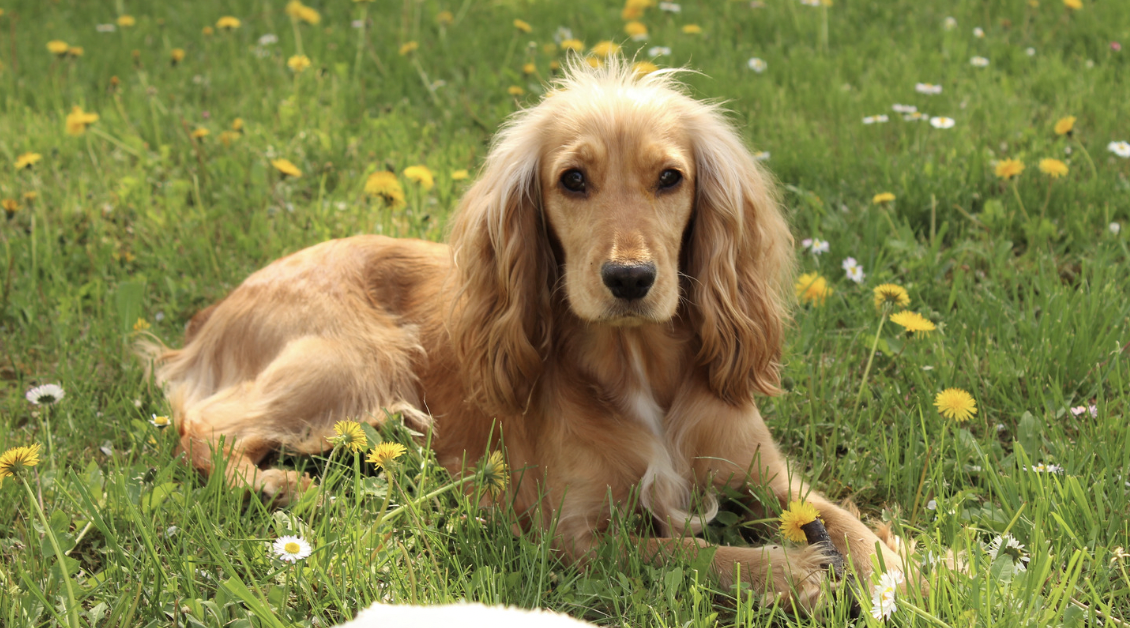
Despite their hard-working personalities, Cocker Spaniels are also known for being affectionate with their humans and particularly good with children of all ages. Lovely little family dogs, Cocker Spaniels are eager to please and love to play.
The Cocker Spaniel’s most distinguishing feature is its stunning coat. Heavy and lush, their fur grows mostly straight with a slight wave, and when maintained can be kept sleek and shiny. Cockers also come in a huge range of colors and patterns including black, silver, buff, red, brown and tan, brown and white, and more.
High-energy and often vocal, the Cocker Spaniel enjoys having something to do and is happiest with an activity or a job to do. Some are prone to laziness, which makes them excellent snuggle companions, but it’s important to keep these pups moderately active to protect their joints as they age.
Most Cocker Spaniel owners also note that this breed can be a bit food obsessed. “Mine is a complete loon. He has trained the neighbor to feed him when he barks. As a result, he’ll sit out there for an hour, in the rain, waiting to get fed,” says one Reddit user in a comment on a thread about Cocker Spaniels and food motivation.
Don’t let the big brown eyes fool you, your Cocker Spaniel will try to get a second breakfast out of you!
American Cocker Spaniel vs. English Cocker Spaniel
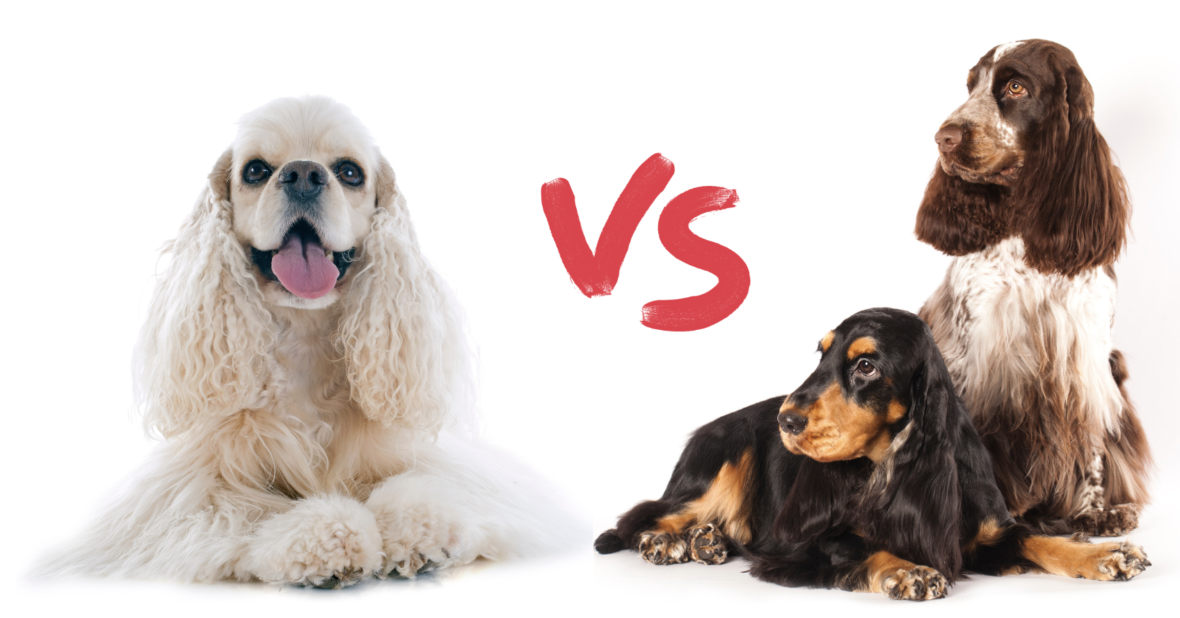
Cocker Spaniels are broken into two categories or breed types: American Cocker Spaniels and English Cocker Spaniels.
American Cocker Spaniels (usually just called Cocker Spaniels) are slightly smaller at around 13.5–15.5 inches tall and 20–30 pounds in weight. American Cocker Spaniels may be shorter, but they have a slightly longer body and tail than the ECS. Their fur collects mainly around the feet and is heaviest at the bottom.
English Cocker Spaniels are slightly taller and more square at around 15–17 inches in height and 26–34 pounds in weight.
What Triggers Dog Allergies?
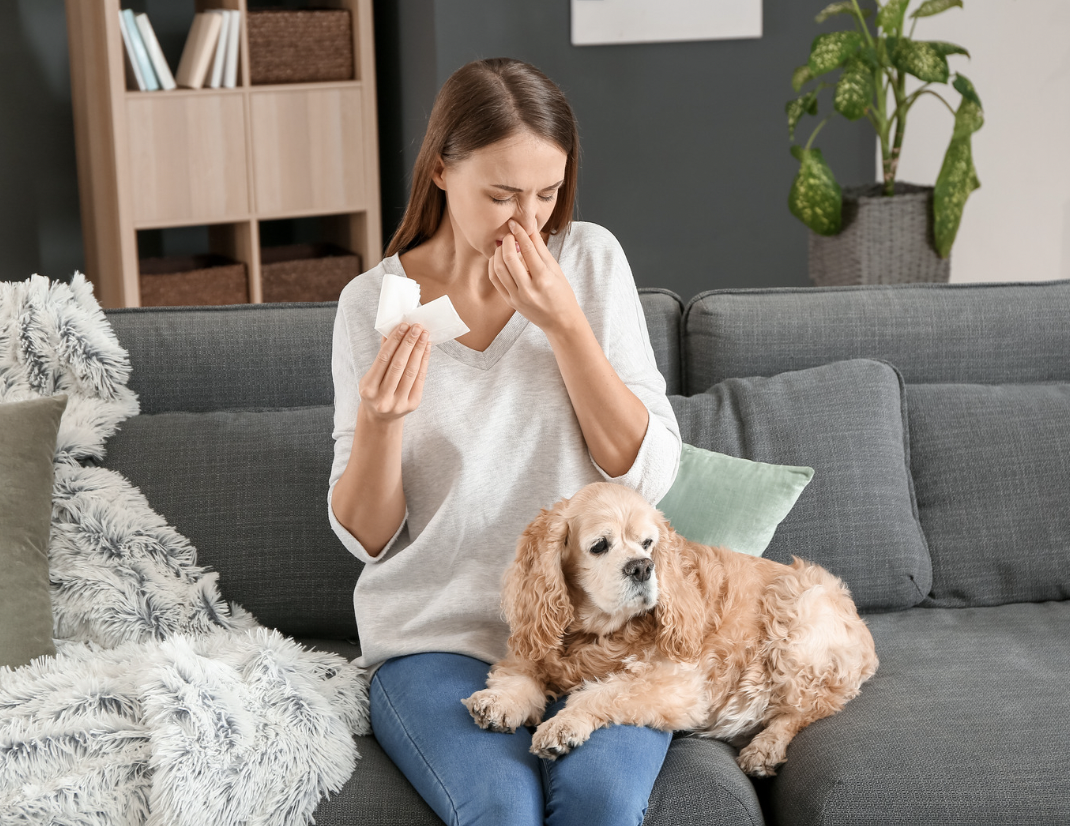
Contrary to popular belief, no dog is 100% hypoallergenic. No, not even Poodles.
The idea of a completely hypoallergenic breed was created mostly as a marketing tactic, mostly fueled by the myth that a low-shedding dog also produces less allergen. This is untrue. So-called hypoallergenic dogs have been shown to carry more Can f 1—one of the proteins that cause allergic reactions in people—than non-hypoallergenic breeds. Despite this, homes with “hypoallergenic” and non-hypoallergenic dogs test approximately the same for accumulated canine allergens.


Humans can be allergic to proteins found in dog dander (aka dead skin), saliva, and urine. Every breed of dog produces approximately the same amount of these allergens, although there are some differences between individuals. You can be allergic to some, or all of these proteins, and your dog allergies can change over time.
“There is no guarantee that, over time, you won’t develop an allergy to one of the other dog allergens,” says the American College of Allergy, Asthma & Immunology in their quick guide to hypoallergenic dogs. The ACAAI goes on to note that, even if you find a dog that doesn’t immediately trigger an allergic reaction, “[that] dog [could] produce higher levels of those allergens later in its life.”
So, what should you do if you’re a dog lover with dog allergies? Are you doomed to never own a dog?
In just a moment, we’ll share a few tips for managing allergies if you’ve already got a Cocker Spaniel, or are getting a dog soon. If you have the time to prepare or are ready to start treating your pet allergies long-term, there are allergen immunotherapies available that can help to reduce your sensitivity to canine allergens.
How To Care For Your Cocker Spaniel’s Coat To Manage Allergies
1. Give Your Cocker Spaniel Regular Baths
There are two key reasons to bathe your Cocker Spaniel if you have dog allergies.
First, a good bath now and then will help to wash out stuck fur and dander, which would otherwise be dropped around your home.
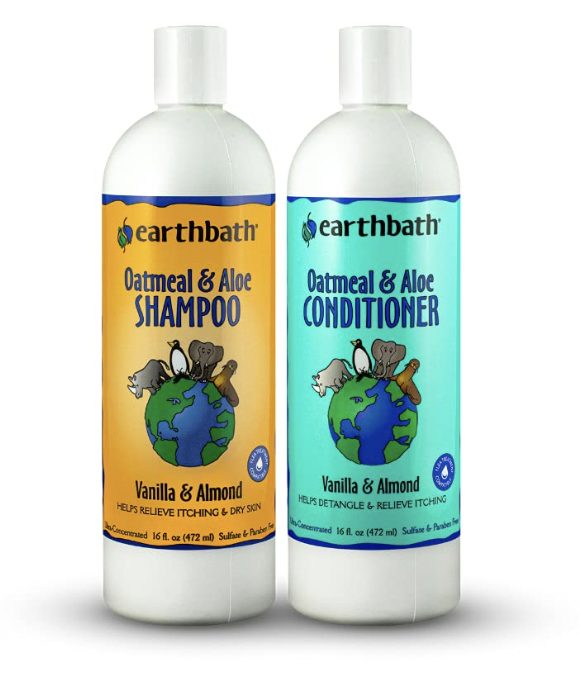

Second, bathing your Cocker Spaniel with a good quality dog shampoo and conditioner can help to nourish their skin, reduce dryness, and reduce some dander production.
2. Brush Your Cocker Spaniel Outside
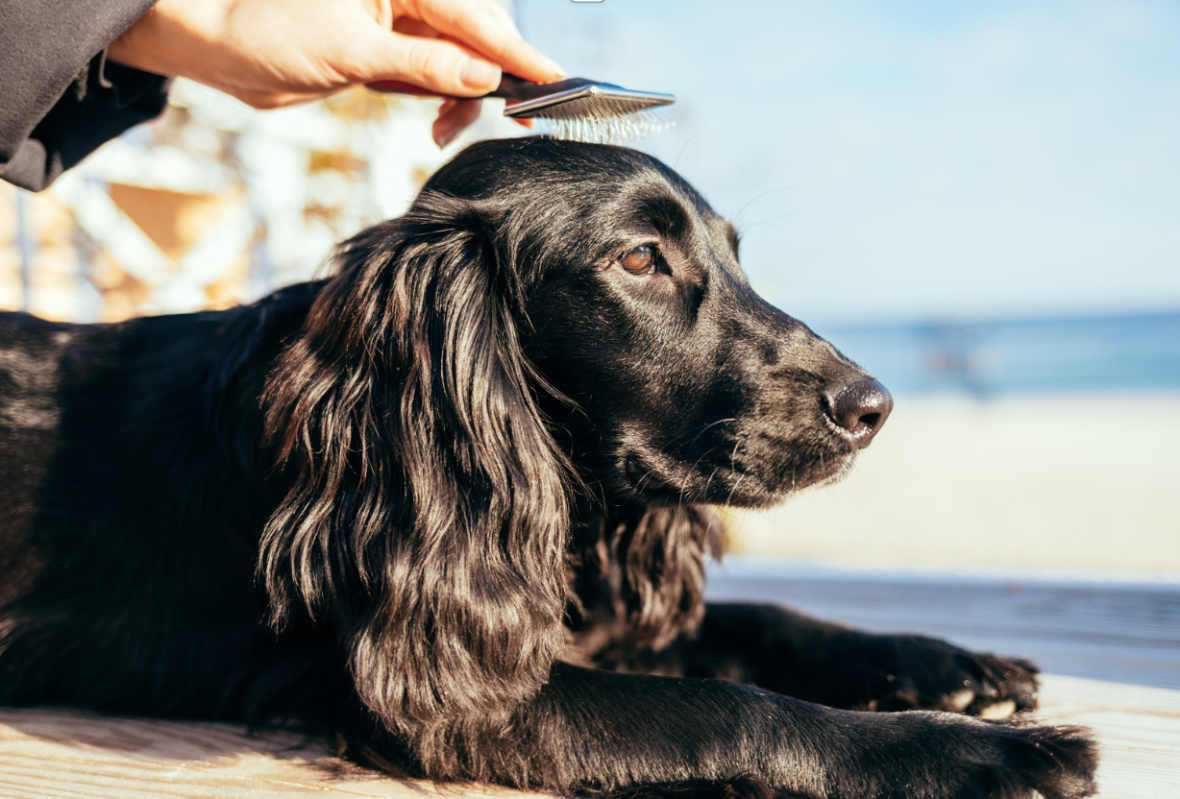
Because Cocker Spaniels have that gorgeous, long, flowing fur, they need regular brushing to keep them detangled and to remove debris. Every time you brush your dog, they will drop loose fur and dander. To reduce the amount of dander they drop in your home, try doing their regular brushing outside!
3. Schedule Regular Appointments with a Dog Groomer
Giving your dog a bath at home is important, especially for breeds like the Cocker Spaniel. That said, taking them to the groomer is just as important, since a professional can do a more thorough job, and can get more stuck fur and dander out than you can at home.
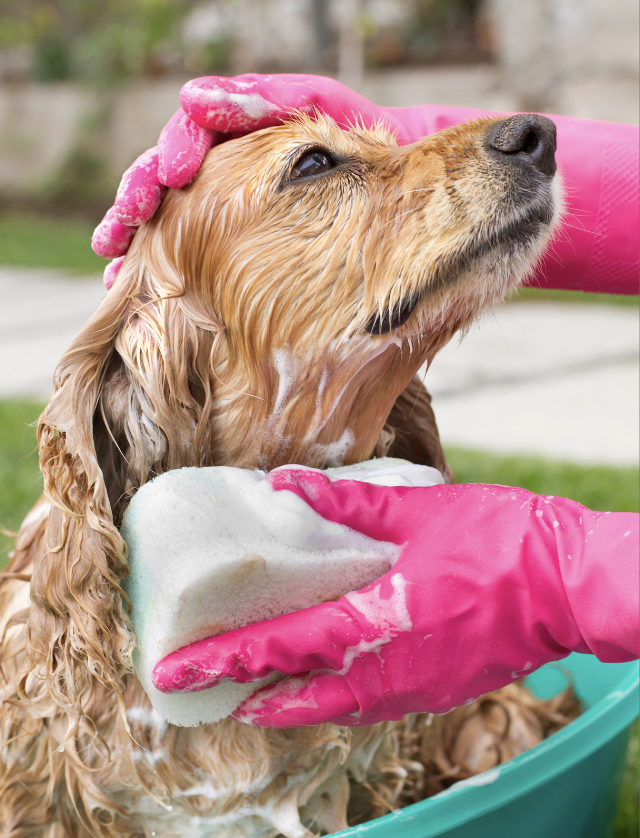
Every 6–10 weeks is the right grooming schedule for a Cocker Spaniel, but this will also depend on how often your dog plays outside, how well you brush/wash them between professional grooms, their diet, etc.
4. Eliminate Soft Surfaces From Your Home
Soft surfaces like rugs, carpets, and fabric furniture collect dust and dander no matter how often you clean them. These items often have the highest allergen concentration in the home. By eliminating as many soft surfaces from your home as possible, you can significantly reduce the amount of dander that builds up.
5. Filter Your Air


It’s impossible to stop your furry friend from shedding dander since even low-shedding dogs still have skin cells that can trigger allergies. However, investing in a top-notch air filter or purifier for your living space can help eliminate tiny particles of dander and allergen from the air. This can significantly improve the quality of the air you breathe and reduce allergic reactions caused by your Cocker Spaniel.
If you’re trying to avoid cold or flu season, having an air purifier in the home can also protect your immune system from disease.
Popular Low-Shedding Dog Breeds
Although low-shedding dog breeds aren’t necessarily less likely to trigger your allergies, there are other reasons to choose one over a moderate or heavy-shedding breed. For example, you might not want to manage loose fur stuck to all of your clothing or furniture—for some people that’s not a problem, for others, it can be a real nuisance. Of course, it’s important to keep in mind that low-shedding dogs shed, just not very much!
Here are thirteen popular (and unique) low-shedding dog breeds.
- Afghan Hound
- American Hairless Terrier
- Basenji
- Bedlington Terrier
- Bichon Frise
- Chinese Crested Dog
- Irish Water Spaniel
- Maltese
- Poodle (Toy, Miniature, and Standard)
- Portuguese Water Dog
- Schnauzer (Miniature, Standard, and Giant)
- Soft-Coated Wheaten Terrier
- Xoloitzcuintli (Mexican Hairless)
Are Cocker Spaniels Hypoallergenic? The FAQ
If you scrolled down to this section to get a quick answer to the question: are Cocker Spaniels hypoallergenic dogs? The answer is: No.
If you’re looking for an answer to another question about the Cocker Spaniel, keep on reading!
Do Cocker Spaniels shed a lot?
Cocker Spaniels shed a light to moderate amount, depending on factors like health, nutrition, and stress levels.
Cocker Spaniels have a single coat and do not blow their coats or experience true “shedding seasons” like double-coated breeds. Instead, Cocker Spaniels will shed approximately the same amount year-round, though slightly more in spring and fall.
Are Cocker Spaniels good for people with pet allergies?
If you have a severe dog or pet allergy, a Cocker Spaniel may not be the right pet for you. Consult with an allergist or your doctor to see what they think would be the best option for your circumstances.
Can regular grooming reduce the allergy potential of a Cocker Spaniel?
Sort of. Regular grooming can help eliminate some of the dander your dog would otherwise drop in your home, but it can’t reduce how much allergen your dog produces, or impact the allergens in their saliva and urine.
Are there any hypoallergenic Spaniels?
The Irish Water Spaniel is the only Spaniel sometimes referred to as “hypoallergenic” thanks to its low shedding coat.
Is the Cockapoo hypoallergenic?
No. There is no such thing as a 100% hypoallergenic dog, even though many Doodles (Poodle mixes) are advertised as being suitable for people with allergies. Cockapoos (a mix of Poodle and Cocker Spaniel) are sometimes low-shedding, but as we already know, that doesn’t mean that they’re hypoallergenic!
What does it mean when a dog is hypoallergenic?
A hypoallergenic dog breed is one that is less likely to cause an allergic reaction in humans with dog allergies.
What causes allergies in dogs?
Allergies in dogs are caused by a reaction to certain proteins found in the dog’s saliva, skin cells, and urine.
Are there any dog breeds that are completely hypoallergenic?
No dog breed is completely hypoallergenic, but there are some breeds that are less likely to cause an allergic reaction in people with allergies.
What are some hypoallergenic dog breeds?
Some hypoallergenic dog breeds include Maltese, Poodles, Bichon Frises, and Portuguese Water Dogs.
Can allergies to dogs be treated?
Allergies to dogs can be managed with antihistamines, nasal sprays, and allergy shots, but there is no cure for dog allergies.
Can someone with dog allergies ever own a dog?
It is possible for someone with dog allergies to own a dog, but they may need to choose a breed that is less likely to trigger their allergies or take steps to manage their allergies.
Are there any health issues associated with Cocker Spaniels?
Cocker Spaniels are prone to a number of health issues, including ear infections, hip dysplasia, and allergies.
Do Cocker Spaniels make good family pets?
Yes, Cocker Spaniels are known for their friendly and affectionate nature and can make excellent family pets.
Are Cocker Spaniels good with children?
Yes, Cocker Spaniels are generally good with children and enjoy playing and interacting with them.
Do Cocker Spaniels require a lot of exercise?
Cocker Spaniels require regular exercise to keep them healthy and happy, but they do not require excessive amounts of exercise.
Are Cocker Spaniels easy to train?
Cocker Spaniels are generally intelligent and eager to please, but they can be stubborn at times and may require consistent and patient training.
Related Articles:
- Finding the Perfect Hypoallergenic Dog for Your Family: Tips for Adopting a Dog That Won’t Trigger Allergies
- 55 Hypoallergenic Dog Breeds You Might Be Able To Live With If You Have Allergies
